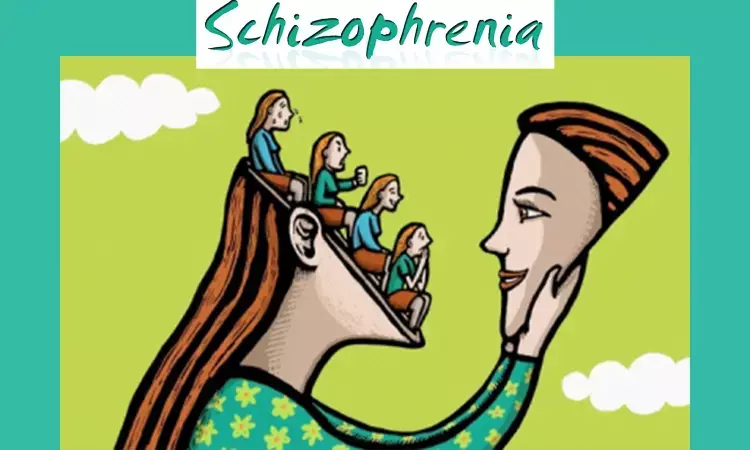- Home
- Medical news & Guidelines
- Anesthesiology
- Cardiology and CTVS
- Critical Care
- Dentistry
- Dermatology
- Diabetes and Endocrinology
- ENT
- Gastroenterology
- Medicine
- Nephrology
- Neurology
- Obstretics-Gynaecology
- Oncology
- Ophthalmology
- Orthopaedics
- Pediatrics-Neonatology
- Psychiatry
- Pulmonology
- Radiology
- Surgery
- Urology
- Laboratory Medicine
- Diet
- Nursing
- Paramedical
- Physiotherapy
- Health news
- Fact Check
- Bone Health Fact Check
- Brain Health Fact Check
- Cancer Related Fact Check
- Child Care Fact Check
- Dental and oral health fact check
- Diabetes and metabolic health fact check
- Diet and Nutrition Fact Check
- Eye and ENT Care Fact Check
- Fitness fact check
- Gut health fact check
- Heart health fact check
- Kidney health fact check
- Medical education fact check
- Men's health fact check
- Respiratory fact check
- Skin and hair care fact check
- Vaccine and Immunization fact check
- Women's health fact check
- AYUSH
- State News
- Andaman and Nicobar Islands
- Andhra Pradesh
- Arunachal Pradesh
- Assam
- Bihar
- Chandigarh
- Chattisgarh
- Dadra and Nagar Haveli
- Daman and Diu
- Delhi
- Goa
- Gujarat
- Haryana
- Himachal Pradesh
- Jammu & Kashmir
- Jharkhand
- Karnataka
- Kerala
- Ladakh
- Lakshadweep
- Madhya Pradesh
- Maharashtra
- Manipur
- Meghalaya
- Mizoram
- Nagaland
- Odisha
- Puducherry
- Punjab
- Rajasthan
- Sikkim
- Tamil Nadu
- Telangana
- Tripura
- Uttar Pradesh
- Uttrakhand
- West Bengal
- Medical Education
- Industry
Kids at familial risk of schizophrenia show early neurocognitive deficits: Study

Denmark: In children aged 7 to 11 years, familial high risk (FHR) of schizophrenia, but not bipolar disorder, is tied to stable neurocognitive impairments, says a recent study. The findings of the study, published in JAMA Psychiatry warrant early attention to this group.
Findings from the cohort study suggest that neurocognitive maturation was comparable across groups of children at FHR of schizophrenia or bipolar disorder versus population-based control (PBC) from age 7 to 11 years. Children at FHR of schizophrenia compared with the PBC group showed widespread, stable, neurocognitive impairments during this period, children at FHR of bipolar disorder however showed no neurocognitive impairments. This implies distinct neurodevelopmental pathways in children at FHR of schizophrenia and bipolar disorder.
Neurocognitive impairments occur in children at FHR of bipolar disorder and schizophrenia. Studies on preadolescent developmental courses of neurocognition are crucial to describe shared and distinct neurodevelopmental pathways in these groups.
Against the above background, Christina Bruun Knudsen, Psychosis Research Unit, Aarhus University Hospital–Psychiatry, Aarhus, Denmark, and colleagues aimed to assess the development of specific neurocognitive functions from age 7 to 11 years in children at FHR of schizophrenia or bipolar disorder compared with children in a PBC group.
The Danish High Risk and Resilience Study is a prospective, longitudinal, cohort study that collected data from January 1, 2013, to January 31, 2016 (phase 1), and from March 1, 2017, to June 30, 2020 (phase 2). Data collection was done at 2 university hospitals in Denmark. Participants included 520 children at FHR of schizophrenia or bipolar disorder along with a PBC group matched with the group of children at FHR of schizophrenia by age, sex, and municipality.
Using validated tests of intelligence, attention, processing speed, memory, executive functioning, and verbal fluency neurocognitive functioning was assessed. Neurocognitive development from age 7 to 11 years was estimated using multilevel mixed-effects linear regression models with maximum likelihood estimation.
The findings of the study were as follows:
- At 4-year follow-up, a total of 451 children (mean age; 11.9 years; 208 girls [46.1%]) underwent neurocognitive testing. There were a total of 170 children at FHR of schizophrenia (mean age, 12.0; 81 girls [47.7%]), 103 children at FHR of bipolar disorder (mean age, 11.9 years; 45 girls [43.7%]), and 178 children in the PBC group (mean age, 11.9 years; 82 girls [46.1%]).
- At either age 7 or 11 years or at both assessments, 520 children participated in the neurocognitive assessment and were therefore included in the analyses. When correcting for multiple comparisons, no statistically significant time × group interactions were observed across the 3 groups.
- Compared with the PBC group at 4-year follow-up, children at FHR of schizophrenia showed significant neurocognitive impairment in 7 of 24 neurocognitive measures (29.2%; Cohen d range, 0.29-0.37).
- Compared with children at FHR of bipolar disorder, children at FHR of schizophrenia had significant neurocognitive impairment in 5 of 24 measures (20.8%; Cohen d range, 0.29-0.38).
- Children at FHR of bipolar disorder and those in the PBC group did not differ significantly.
The researchers concluded, "results of this study indicate that FHR of schizophrenia, but not bipolar disorder, is associated with stable neurocognitive impairments in children aged 7 to 11 years, which warrants early attention toward this group."
Reference:
Knudsen CB, Hemager N, Greve AN, et al. Neurocognitive Development in Children at Familial High Risk of Schizophrenia or Bipolar Disorder. JAMA Psychiatry. Published online April 06, 2022. doi:10.1001/jamapsychiatry.2022.0465
Dr Kamal Kant Kohli-MBBS, DTCD- a chest specialist with more than 30 years of practice and a flair for writing clinical articles, Dr Kamal Kant Kohli joined Medical Dialogues as a Chief Editor of Medical News. Besides writing articles, as an editor, he proofreads and verifies all the medical content published on Medical Dialogues including those coming from journals, studies,medical conferences,guidelines etc. Email: drkohli@medicaldialogues.in. Contact no. 011-43720751


